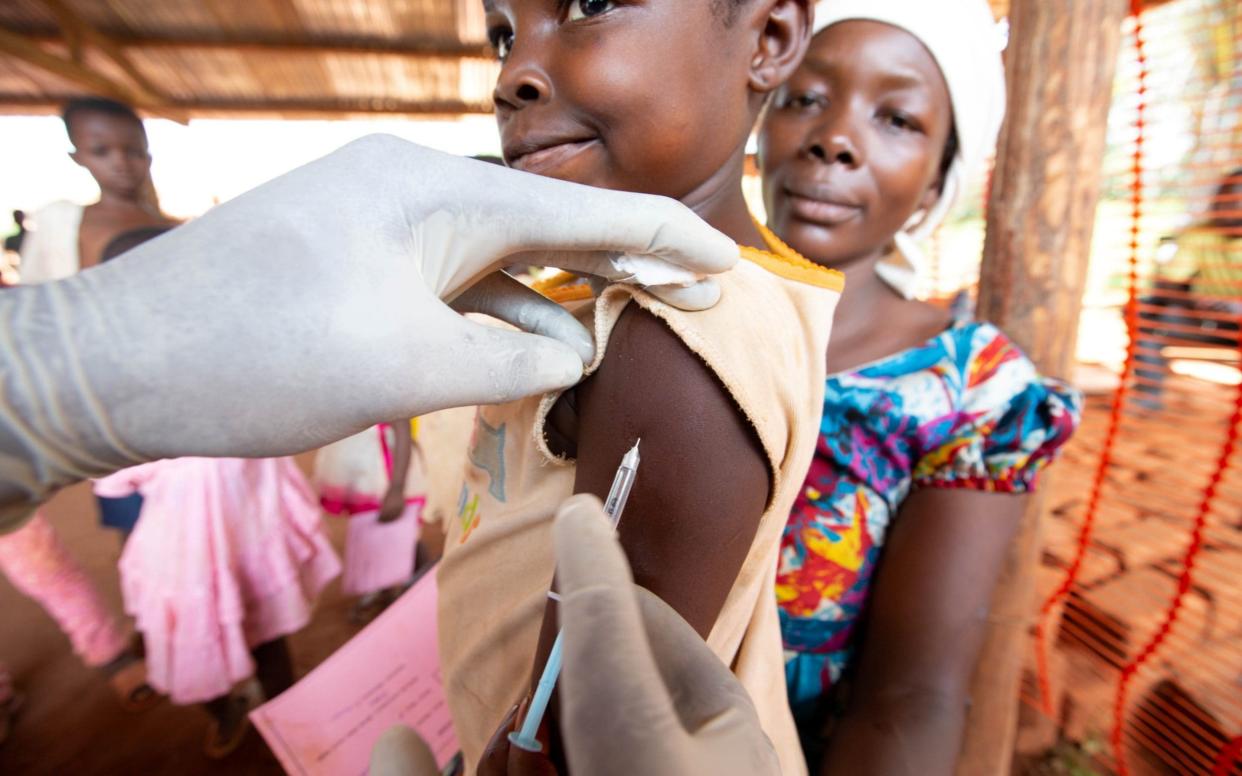Nearly 100m babies at risk of measles and polio due to cancelled vaccination services


At least 80 million babies are at risk of deadly infectious diseases because of disruption to life-saving vaccinations caused by the coronavirus pandemic.
Routine immunisation has been hit in at least 68 countries - both rich and poor - meaning that millions of babies are at risk of diseases such as measles, polio and diphtheria, analysis by the World Health Organization, Unicef and Gavi has shown.
Measles and polio immunisation campaigns have been particularly badly hit, with measles campaigns suspended in 27 countries and polio campaigns in 38.
And 24 million people in 21 countries supported by Gavi, which provides vaccines to the poorest nations in the world, are at risk of missing out on vaccinations against a range of diseases including, polio, measles and cholera.
Dr Tedros Adhanom Ghebreyesus, director general of the World Health Organization, called for governments to keep essential services running.
“As the world comes together to create a lifesaving vaccine for Covid-19, we must not forget those that already exist. “As well as fighting Covid-19, governments also need to ensure that central services are maintained,” he said.
This is the latest data to show the havoc coronavirus is wreaking on health systems around the world, with a report by the UN earlier this week warning that humanity is set to go into reverse because of the pandemic’s “triple hit” on education, income and health.
The reasons for disruption to immunisation services vary. Some parents are reluctant to leave home because of restrictions on movement or because of fears of picking up the virus. In other cases health services are closed or health workers have been deployed to other duties.
Dr Seth Berkley, chief executive of Gavi, added that the “alarming” data represents an increase in the number of children at risk that “hasn’t been seen really in a lifetime”.

He also pointed to modelling from the London School of Hygiene and Tropical Medicine which suggested that for every coronavirus death prevented by cancelling routine vaccinations, there are more than 100 deaths from vaccine-preventable diseases.
Dr Berkley also added that disruptions to immunisation supply chains could have a negative impact on efforts to distribute a coronavirus vaccine, once it is ready.
“The solution is absolutely clear. Countries must take every measure necessary to keep the distribution and vaccination efforts going,” he said, highlighting Laos and Uganda which have continued vaccination campaigns, but incorporated measures to prevent the spread of Covid.
On June 4 the UK government is set to host Gavi’s five-yearly funding replenishment where donors will pledge their support for vaccination in developing countries. Dr Berkley urged donors to dig deep. “These countries, these children especially, need vaccines,” he said.
Henrietta Fore, executive director of Unicef, added: “Five months since Covid started upending the lives of people across the world and we know for sure that its impact on children will last long and cut deep.”
She added that while there are “valid reasons” that routine vaccination campaigns have been postponed - including a need to redeploy health workers and resources and maintain social distancing - efforts must be made to ensure children catch up.
“We cannot exchange one deadly outbreak for another. We cannot afford to lose decades of health work that people have worked so hard to achieve,” Ms Fore said.
Protect yourself and your family by learning more about Global Health Security


